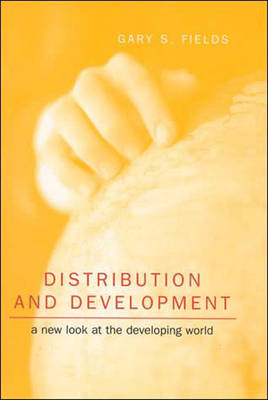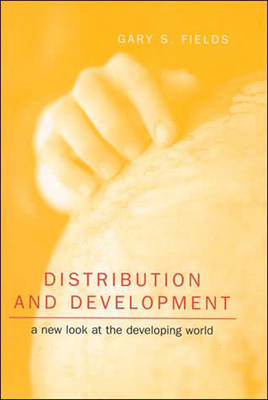
Door een staking bij bpost kan je online bestelling op dit moment iets langer onderweg zijn dan voorzien. Dringend iets nodig? Onze winkels ontvangen jou met open armen!
- Afhalen na 1 uur in een winkel met voorraad
- Gratis thuislevering in België vanaf € 30
- Ruim aanbod met 7 miljoen producten
Door een staking bij bpost kan je online bestelling op dit moment iets langer onderweg zijn dan voorzien. Dringend iets nodig? Onze winkels ontvangen jou met open armen!
- Afhalen na 1 uur in een winkel met voorraad
- Gratis thuislevering in België vanaf € 30
- Ruim aanbod met 7 miljoen producten
Zoeken
€ 37,95
+ 75 punten
Omschrijving
Most of the world's people live in "developing" economies, as do most of the world's poor. The predominant means of economic development is economic growth. In this book Gary Fields asks to what extent and in what circumstances economic growth improves the material standard of living of a country's people. Most development economists agree that economic growth raises the incomes of people in all parts of the income distribution and lowers the poverty rate. At the same time, some groups lose out because of changes accompanying economic growth. Fields examines these beliefs, asking what variables should be measured to determine whether progress is being made and what policies and circumstances cause some countries to do better than others. He also shows how the same data can be interpreted to reach different, even conflicting, conclusions. Using both theoretical and empirical approaches, Fields defines and examines inequality, poverty, income mobility, and economic well-being. Finally, he considers various policies for broad-based growth. Copublished with the Russell Sage Foundation.
Specificaties
Betrokkenen
- Auteur(s):
- Uitgeverij:
Inhoud
- Aantal bladzijden:
- 270
- Taal:
- Engels
Eigenschappen
- Productcode (EAN):
- 9780262561532
- Verschijningsdatum:
- 26/07/2002
- Uitvoering:
- Paperback
- Formaat:
- Trade paperback (VS)
- Afmetingen:
- 141 mm x 225 mm
- Gewicht:
- 408 g

Alleen bij Standaard Boekhandel
+ 75 punten op je klantenkaart van Standaard Boekhandel
Beoordelingen
We publiceren alleen reviews die voldoen aan de voorwaarden voor reviews. Bekijk onze voorwaarden voor reviews.











